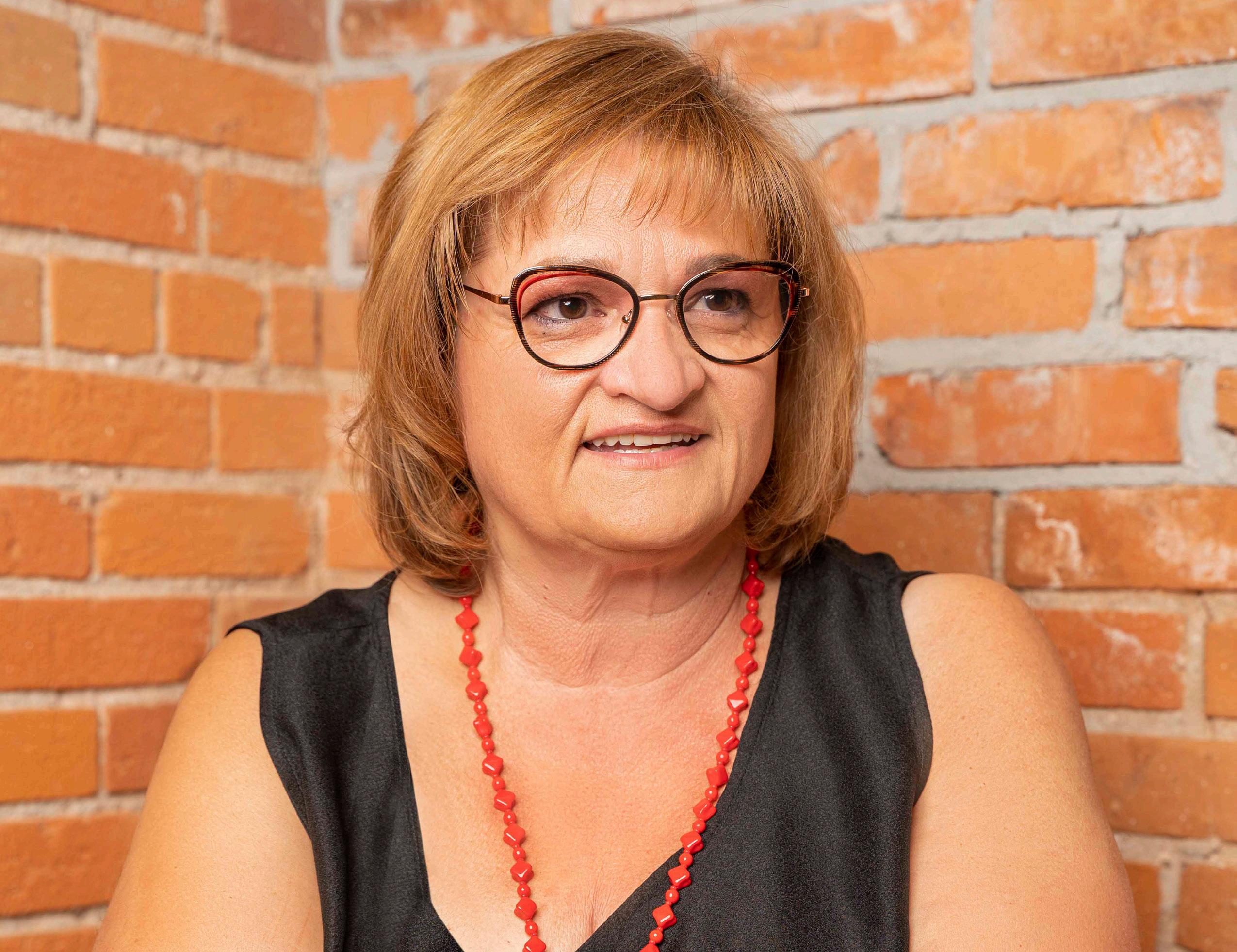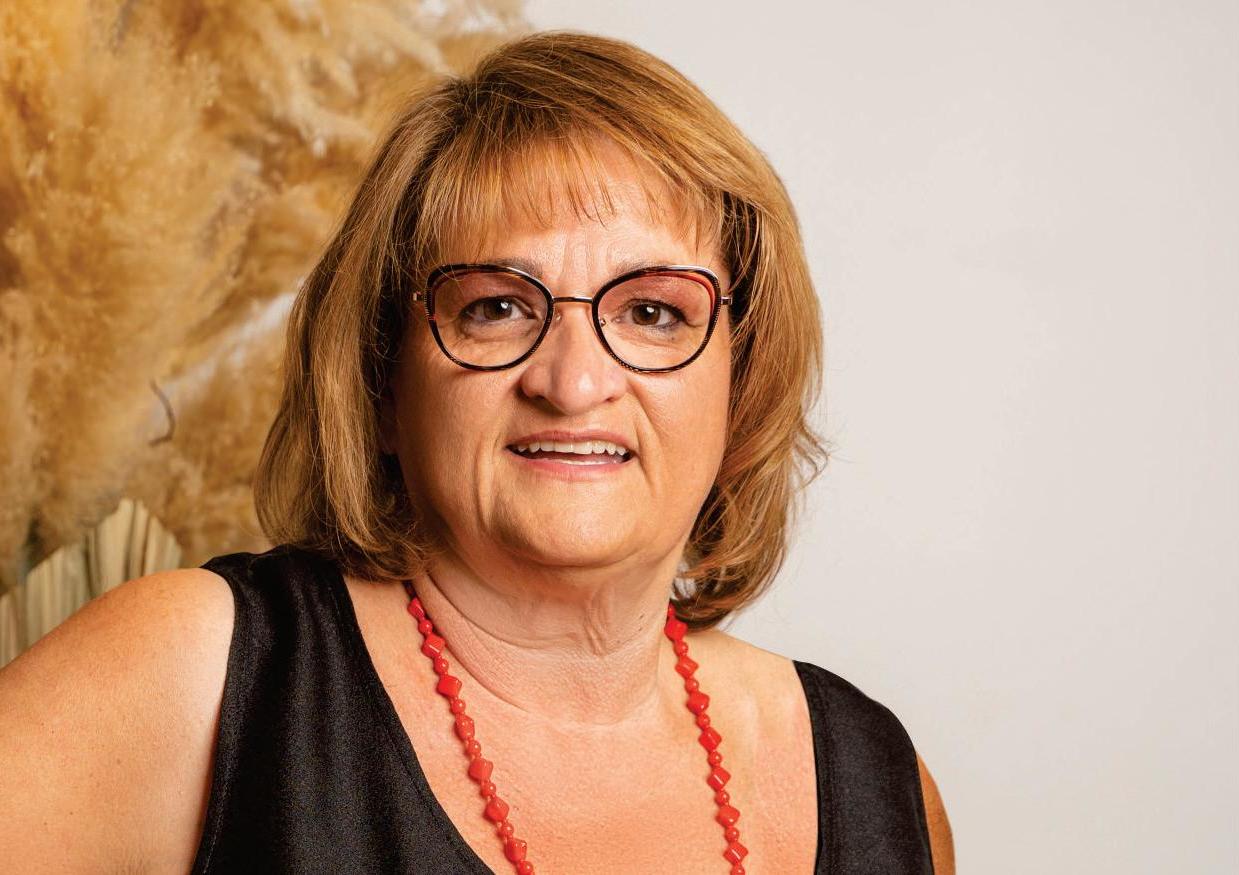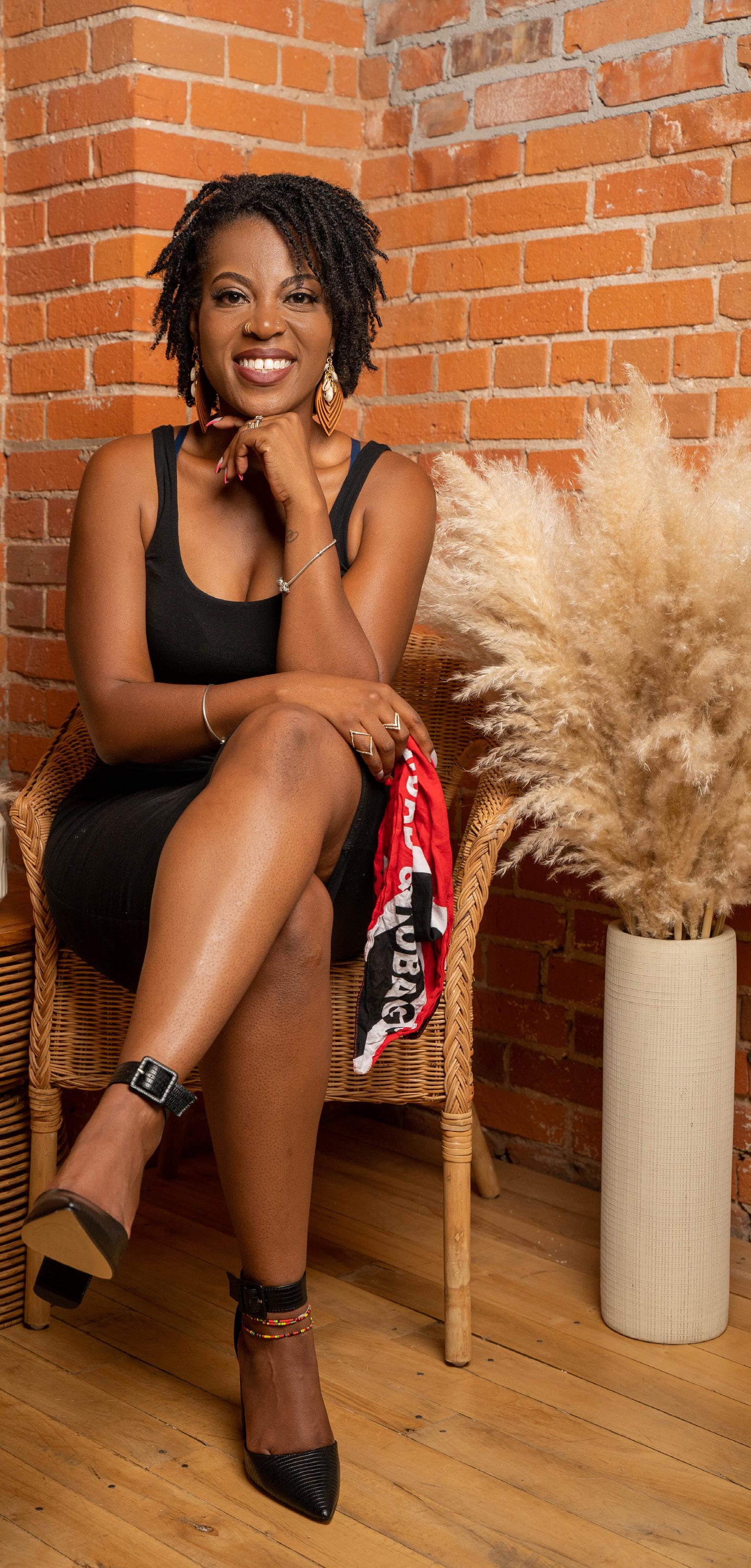
12 minute read
Exploring Business Possibilities - Teresa Spinelli
Exploring BUSINESS
POSSIBILITIES
Teresa Spinelli
eresa Spinelli hardly needs an introduction. She is a force to be reckoned with. She was the first to get to the studio when we had our photo shoot recently. And she was very warm too. She made sure she knew more than the names of everyone present. ‘Is this what you do?’ Do you go home of‑ ten? How long have you lived in Edmonton? Her questions made us warm to her, and it also showed that behind the suc‑ cess of the Italian Centre Shop, is a warm and sweet mother‑type business woman who cares about the well‑being of the people she works with.
In this media chat, we uncover tried and tested principles of business and lifestyle that sustains an empire in the 21st century. Success is never accidental. Success is possible even if it takes a lifetime. This is what we learnt from Teresa Spinelli. Spinelli is refreshing. She is down to earth and most of all, her warmth draws you closer. I hope you enjoy reading the
Tinterview. The Italian Centre Shop in Sherwood Park opened on July 21st 2021.
What inspired you to create the empire you have now?
People inspired me. When I started, I wasn’t sure I wanted to be in this business. And then I quickly realized that it wasn’t about selling salami for me. I wanted to give people the opportunity to grow. I wanted to share our culture. For Italians, and many different countries, delicious bountiful meals are the way of life and the din-
Business
SPOTLIGHT
ner table is where we bond. It is where families come together, friends are found, memories are made and business is done. I wanted to bring that to different parts of our communities.
What strategies do you have in place to help people grow?
I just respect everybody and give them an opportunity to shine, and also give them all the tools they need to do their job well, and really, that’s what has brought the Italian Centre to where we are today. Team work brought us here.

You’ve done phenomenally well in a male-dominated environment. Do you find that there are more women in business right now than in the 70s, 80s, or in the 90s?
I think there are more women in business now. The unfortunate part is that they are mostly small businesses. The larger businesses are mostly male dominated. So, we want to fill that gap. There are a lot of women in business, women who do phenomenal jobs. But when you come to medium or larger sized businesses, you see less women and I think that’s what we have to work on.
When you say you want to help people grow and provide an environment, you are in Calgary, Edmonton and now you’re here opening a new store in Sherwood Park, how do you retain that family-like relationship?
Really great question. So of course, there is always a struggle of, how do we grow and keep that family feeling. And all of our stories kind of have a different feel, but are all mostly based on people. Again, I think it’s our values, our respect, growth and loyalty. We try our best to give our team everything that they need in order to grow. It starts from the top—there is no us and them. I tell my store managers, they work for the people that report to them. I tell our supervisors, they work for the people that report to them, and I work for our store managers. So, it’s very much a bottom-up culture. We always have to keep in mind that there is no us and them, we are in this together.
I don’t have a special parking spot. I’m no more special than the cashier or the person that cuts salami or whoever, we’re all equals. And that’s really important.
We heard an amazing story that you know the names of every employee that you have. Is this true?
Well, now I don’t know the people at Sherwood Park yet. But after Sherwood Park, I certainly will. I know most of that to say 90% of the names, because I’ve got 520 employees, it’s a lot. Now with Sherwood Park we are at 650, so, I haven’t learned that 130, but I will. Not only their names, but I pride myself in getting to know them. I know if they have somebody sick at home, struggling with something. I know what their challenges are just
on a friend basis. I want them to know that we’re here to support them to reach their goals, whatever their goals are, I want to make sure we’ll do whatever we can to help them.
How do you distribute yourself across your stores these days?
I’m usually in Little Italy because that’s where I live. I live across the street from the store. And that’s our head office. So, I spend most of my time there.
Is your knowledge informed by role models? Is this knowledge informed by maybe something your parents passed on to you?
I think it’s a little bit of both. I mean, my parents taught us to respect everybody. In our home, everybody was equal, we treated them the same. And my mother and father instilled that in us. And then being around business for so long, I realized that, at the end of the day, we really are all the same. We all want to know that we make a difference, and that we matter. And remembering somebody’s name makes them know they matter. When I walk in and I say, Sally, that shelf looks fantastic. I’ve made Sally’s day. And when somebody says to me, Teresa, you’ve got a great team, that makes me really happy. Sometimes people say to me, well, your team really loves you. And I go well, why wouldn’t they? I really love them. I truly, truly love them. And I care about them. So why won’t they care about me? Right? So that’s how we try to live our business life and our personal life.
Do you have any role models right now?
Everybody I work with, is amazing to me, people like yourself, when you go to a new country, and then have to start all over again. That’s amazing. I don’t know if I could do that. And everybody has an incredible story, right? Everybody, whether they’re challenged with addictions, whether they’re leaving family behind, whether they’re new immigrants, whether language is a barrier, everybody has an amazing story. I think we must share those stories, and the more we share those stories, the more tolerant and understanding we become of other people.
How were you able to keep your stores open, during the pandemic, in spite of the travel restrictions? How were you able to get imports or exports?
We really didn’t have a problem with the supply chain, just minor
How do you differentiate between the different types of olive oil that you have? You have a whole aisle of olive oil? How do you know the authentic versus the counterfeit?
Good question. I’ll start by saying Italy exports double the amount of olive oil that it produces. So obviously it can’t be all Italian olives, right? We’ve worked very closely with the Canadian government to make sure that things are labelled properly. We think people should know where their food comes from. And what’s in it.
What books do you read? Or what are the best books for business out there that we should be reading?
I think sports books are very good books. I think sports and business
I think sports and business are very similar. It’s all about creating teams, all about having goals. It’s all about steps to achieving those goals. So, I find that sports books, whether they’re talking about a hockey team or a soccer team, are great.
problems. But nothing major because Edmonton is such a northern City , we have to import things in the spring, in the fall, and store the products all year round. That has really helped us. There’ve been minor issues like in factories in Italy, where they would make ten different types of panettone which is a Christmas cake. This year, they only made five because of shortage of labour in the pandemic. Those kinds of things, but nothing really major. We are very, very fortunate. One other issue is finding cheese, because we bring in fresh cheese from Italy. Of course, the flights were less, so it was harder to get the fresh cheese in a timely manner because it is fresh and only has a short shelf life, so, that was a bit of a challenge. But we did okay. are very similar. It’s all about creating teams, all about having goals. It’s all about steps to achieving those goals. So, I find that sports books, whether they’re talking about a hockey team or a soccer team, are great. I read a book a long time ago, called ‘The Road Less Travelled.’ It’s really about life. It’s about taking the high road. It’s about looking internally. I think those kinds of books are really great.
You are still a family-owned business? Do you think about legacy in terms of your son taking over from you?
My son came as a surprise. I didn’t have any children for a very long time. And when I was 45, he showed up. So, it was a big surprise, a good surprise.
He’s 14 right now, he’s very young. And he loves the store. And of course, he’s 14, he gets lots of attention. He’s been part of the store since he was a baby, he spends a lot of time there. People love him, they know him. As parents we all want what is best for our kids, for them to be happy and do what they love to do and be good at what they do. So, we will see how it goes.
What does a typical day look like for you?
Once I get to work, I answer emails, usually have a meeting or two in the morning? There is no typical day. They’re all very different. Depending on the store that I’m at, when I’m in Little Italy, I do more work, like office work. When I’m at our other stores, I walk around more and have more meetings and chat and visit and ask a lot of questions to see what people need, what they’re looking for. I always ask what can I do to get an even better store for you? What do you need from me? And I really try to listen and implement all those things.
Speak to our generation, like, encourage us a bit. What do we all need to do to become spinouts of Teresa Spinelli?
I think you have to really love what you do. You know, people always talk about passion, but a lot of people don’t have passion. So, if you’re not passionate about anything, just be aware, walk around and be really aware and go, wow, that was fun. I really like that, or, wow, that was kind of cool. I wish I could do more of that. And just become aware of what you love to do, what you love to be around. I don’t believe that just because you love something, you’ll be successful at it. Because it doesn’t work that way. You have to be willing to work really hard. I find that a lot of entrepreneurs start a business and then they don’t become millionaires overnight, and they quit. Well, it takes years. It doesn’t work that way. You have to really put in the time. Sometimes people say you’re so lucky. Yes, I am very lucky. I inherited a very good business. But I also worked very, very hard. And the harder I work the luckier I got. Surround yourself with really good people. I didn’t do this. I didn’t create this. It was my team. If it wasn’t for my team. I would not be where I am today.
Where do you see your company in the next 20 years?
After Sherwood Park we will be a $100 million company, God willing. I’m very excited about that. That was my goal to be a $100 million company. And then I think we’re going to do two more stores in Calgary, for sure. I’d like to go to Saskatoon, Victoria. Other than that, I don’t really know to be honest with you. We just take it one day at a time. We’re focusing on Sherwood Park right now. We’ll just see how the economy goes, how my team feels, what our possibilities are, and we will explore the possibilities.

The pandemic taught many businesses how to survive. Cherelle learnt that she had to recreate it by switching from a 100% in person live classes to 100% online classes.

SocaFit Business Mogul, Cherelle George Reflects on the Pandemic and How it Impacted Her Business
“Imagination is greater than knowledge”, Cecil George.
Cherelle George is the creator and instructor at SocaFit. SocaFit is Edmonton’s Premier Caribbean Dance and Fitness Class. Her passion for culture and dance always inspired her creativity. Her earliest memories of going to the gym were fun but she never felt a connection to the music.
Raised in a Caribbean household, her father played steel drums and her mother pumped soca. The vibration from the music instilled in her what we now know as SocaFit in Edmonton. When you speak with Cherelle, you understand that connection to culture is very important to her and that she is in many ways the embodiment of culture, music and the arts of her people.
What is SocaFit you might ask? SocaFit is a form of dance and fitness that is tied intricately to soca and calypso music. According to her website, www.socafit.ca, SocaFit brings people from different backgrounds together, to lift spirits, and to empower people through movement. You could also think of SocaFit as more than a dance or fitness class. It is a form of therapy—SocaTherapy.
In this chat, Cherelle reflects on the pandemic and how she was affected by it. The pandemic taught her a lot about herself and what she is capable of doing when vulnerability and fear are staring straight at her. She had two options: stop teaching and wait till the pandemic was over or to adjust, learn, go and grow, the ever-resilient Cherelle chose the second option.
The pandemic taught many businesses how to survive. Cherelle learnt that she had to recreate it by switching from 100% in person live classes to 100% online classes. She said “There was definitely a big learning curve in doing this, but thankfully there were a lot of resources and community groups that helped. Secondly, because we are now online and we were attracting students from all over the world, we now had a challenge with time zones so we decided to create the SocaFit On Demand Channel. Our channel contains pre-recorded content that is uploaded monthly. This allows our students to attend online classes whenever it is the most convenient for them!”










